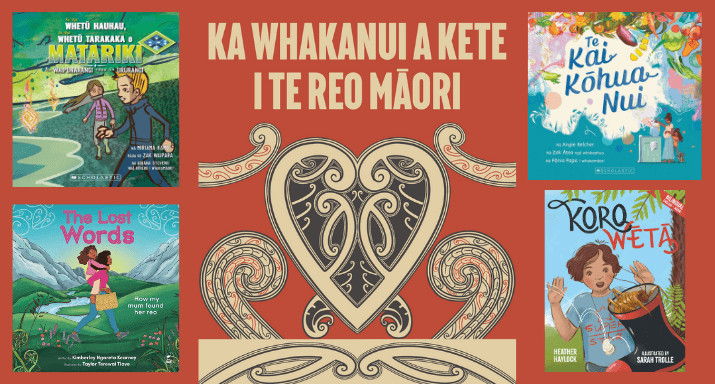Welcome to Māori Language Week 2025!
‘It fills me with pride to know that Māori literature is flourishing across so many forms through the work of Māori writers...’ In his editorial for Te Wiki o te Reo Māori, Hēmi Kelly discusses the legacy of Māori literature.
Read the original Māori language version of this article here Māori Language Week is when the whole country comes together to celebrate our language, the language of this land. I love seeing every sector getting involved to support this kaupapa. Take Kete Books, for example, who once again invited me to be a guest editor. This year, I had the privilege of speaking with Airana Ngarewa. We talked about him, his work, and his new book, The Last Living Cannibal. I deeply admire him for setting himself the challenge of completing three books in three years. When I asked what’s next, he told me: five in five years. Incredible!
In his books, we see a theme that other Māori writers are also exploring: using fiction as a way to carry and preserve our ancestral stories, ensuring they are not lost to today’s generations.
LR.jpg&w=1920&q=75)
This year, students from Newton Central School were also invited to review some children’s books. What I found most special was that they wrote their reviews in te reo Māori, and I translated them into English. It’s a clear sign that the language is alive and thriving among children, and that there’s a real demand for children’s books in Māori. Perhaps that will become one of my own goals in time.

For learners of the language, a new resource has been published to support those striving for accuracy: A pathway to understanding Māori Verbs by Hone Morris. Writing a review of this book came easily to me because of my love for grammar, and Hone was also one of my lecturers at university. This is a reminder of how close-knit the Māori language community is, and how much we rely on collaboration to bring projects to life.

To round out the year, I translated Savannah Patterson’s review of Poto | Short. This collection comprises a hundred poems and short stories.
All of these examples highlight the strength of Māori literature today. Within them are many different genres: fiction grounded in real events, written in English but carrying Māori history and rich with Māori words; children’s and young adult books written entirely in Māori; bilingual grammar resources; and collections of short stories and poetry.
.jpg&w=1920&q=75)
Two books coming out are of particular interest to me. One is by one of my greatest mentors and teachers in Māori translation, Te Haumihiata Mason: her Māori translation of Shakespeare’s Macbeth - Matapēhi. This is truly the pinnacle of Māori translation work.
The other is a history of Te Kooti and his prophetic sayings, written by Sir Pou Temara: Te Āhua o ngā Kupu Whakaari a Te Kooti. It provides a unique window into a part of our history that isn’t widely known.
It fills me with pride to know that Māori literature is flourishing across so many forms through the work of Māori writers, and there is every reason to believe it will continue to grow and thrive in the years ahead.